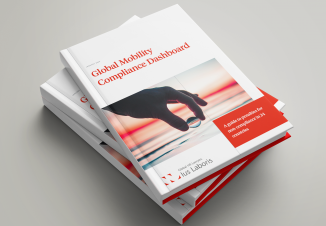
The protection for workers posted for longer periods (12 plus months) will be strengthened when essentially all working and employment conditions according to Swedish law should be applied to them. After 12 months, posted workers are entitled to all mandatory Swedish remuneration and employment terms. There are exceptions for the rules concerning the conclusion and termination of the employment contract, including non-compete clauses; and contributions to supplementary pension schemes. Long-term posting rules: Before the 12-month period has expired, the employer may extend the time to 18 months if he or she reports it to the Swedish Work Environment Authority.
If another posted worker performs the same task at the same place, the cumulative duration of the two postings periods will be considered for calculating the 12-month period. ‘The same task at the same place’ will be considered taking into account, inter alia, the nature of the service provided, the work performed, and the address of the workplace. The employer must then inform the employee of the combined total posting time. Allowances and expenses: Posted workers will not be entitled to only a certain minimum rate of pay. The Swedish implementation for this part is based on the right for trade unions to ultimately take industrial action (workplace blockade, etc.) against the use of posted workers with the purpose of regulating the terms and conditions through a CBA. The trade unions cannot claim remuneration that is more favorable than what the central CBA in the sector has regulated.
CBA-regulated terms and conditions for allowances or reimbursement of expenditure to cover travel, board, and lodging can be claimed for posted workers through support from actions by trade unions. Only expenses for professional reasons that have occurred during the posting in Sweden or for travel to/from the ordinary workplace in Sweden can be reimbursed. Information requirements: An employer must report a posting to the Swedish Work Environment Authority and appoint a contact person in Sweden no later than the date the posting begins. Previously, employers did not need to register postings that lasted a maximum of five days. Information requirements: A service provider will inform a placement agency that posts workers in Sweden about the general working and employment conditions in line with the Agency Work Act that would have applied if the employee had been employed directly by the service company to perform the work.
The obligation is only relevant when the placement agency requests it. The Swedish user company must inform (the Swedish or foreign) temporary work agency in advance if the temporary agency worker will be working in another EEA Member State or in Switzerland. This information should be provided at least ten days before the work commence, or, if that is not possible, as soon as possible.
A new information duty relating to employers who post workers in Sweden is introduced. An employer must provide documentation to the recipient of the service in Sweden that the employer has reported the posting. The Swedish Work Environment Authority will introduce an updated service for employers during autumn 2020 to make it easier to provide the right information. Penalties: A service provider that violates the new information requirements described above (i.e. that leaves information to the posting company), will be liable to pay damages to the posting company for the loss that can be related to the damage.
The possibilities to regulate the terms and conditions for posted workers in the CBA are extended.


